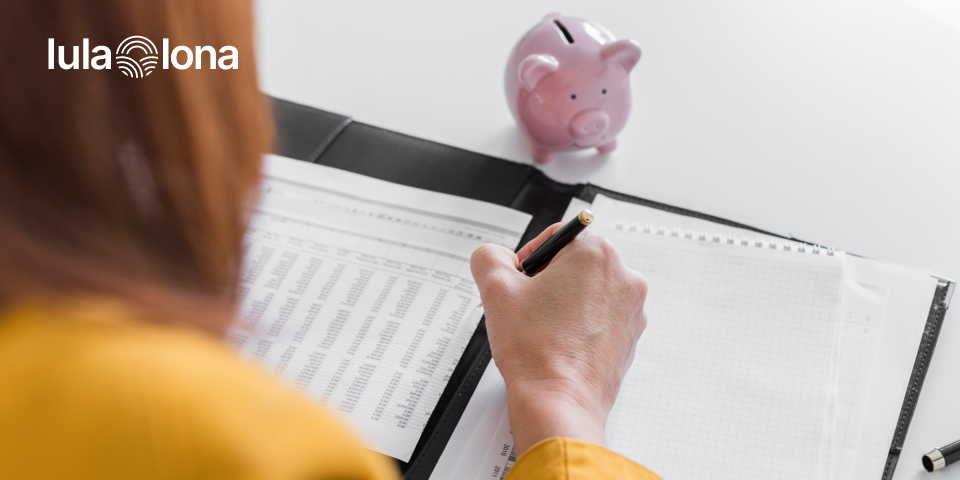
A simple beginner’s guide to budgeting and taking control of your finances in 2025.
Managing money is a skill many of us were never taught in school – yet it’s one of the most essential life skills we need to thrive, especially in a fast-changing economy like South Africa’s. Whether you're living in Cape Town, Durban, or a small rural town, learning to budget gives you the freedom to plan ahead, reduce stress, and take control of your financial future.
At Lula Lona, we believe financial empowerment starts with simple steps. In this guide, we’ll break down exactly how to start budgeting – even if you’ve never done it before.
Why Budgeting Is More Important Than Ever in South Africa
South Africans face a unique set of financial challenges:
- The cost of living continues to rise, with food and fuel prices hitting new highs.
- Load-shedding impacts household expenses.
- Credit usage is widespread, but financial literacy is still limited.
Without a clear plan for how your money flows in and out, it’s easy to overspend, fall into debt, and struggle to reach long-term goals. Budgeting helps you avoid that trap.
Step 1: Know Your Net Income
Your net income is what you earn after tax, not your gross salary. This is the amount you actually have to work with each month.
If you're self-employed, average your earnings from the past three to six months. Be realistic. If you rely on gig work, freelance jobs, or commissions, always budget with your lowest average to stay safe.
💡 Tip: Don’t forget to subtract deductions like UIF, pension contributions, and medical aid.
Step 2: Track Your Spending for a Month
Before you can create a realistic budget, you need to know where your money is going. For one month, track every expense – from rent to airtime and late-night takeaways.
You can do this:
- With a spreadsheet
- Using a budgeting app (like 22seven, GoodBudget, or YNAB)
- Old-school pen and paper
Sort expenses into categories:
- Fixed: rent, transport, school fees
- Variable: groceries, electricity, entertainment
- Occasional: insurance, car maintenance, gifts
This process may feel tedious at first, but it's eye-opening – and necessary.
Step 3: Set Clear Financial Goals
Now that you know how much you earn and spend, ask yourself: what do you want your money to do for you?
Some common goals:
- Build an emergency fund
- Pay off a personal loan
- Save for a deposit on a home
- Reduce credit card debt
- Start investing
Be specific. Instead of saying “save more,” say: “Save R500/month for emergencies for the next 6 months.”
Step 4: Choose a Budgeting Method
There’s no one-size-fits-all when it comes to budgeting. Here are three popular methods used in South Africa:
1. 50/30/20 Rule
- 50% for needs (rent, groceries, transport)
- 30% for wants (eating out, Netflix)
- 20% for savings and debt payments
Best for: beginners with steady income
2. Zero-Based Budgeting
Assign every rand a job. Income – Expenses = R0.
Every cent is accounted for.
Best for: people who like structure and detail
3. Envelope Method (Cash-Based)
Withdraw cash and put it into physical envelopes for categories like food, petrol, etc.
Best for: those who overspend on cards or e-wallets
Step 5: Automate and Simplify
Modern banking in South Africa offers tools to make budgeting easier:
- Set debit orders for savings or loan payments
- Use bank alerts for spending
- Explore digital savings tools like Capitec’s flexible accounts or TymeBank’s GoalSave
The less you have to think about managing your money, the easier it is to stay consistent.
Step 6: Review and Adjust Monthly
Life in South Africa is unpredictable. Prices fluctuate, emergencies happen. So your budget must be flexible.
Set a monthly review date. Ask:
- Did I stick to my budget?
- What went wrong?
- What needs to change next month?
Think of your budget as a living plan – not a fixed rule.
Common Budgeting Mistakes to Avoid
- Being too strict: leave space for enjoyment, or you’ll burn out
- Ignoring small expenses: they add up
- Skipping savings: even R100/month is a start
- Not involving your partner: talk money together to avoid surprises
- Comparing yourself to others: everyone’s situation is different
Budgeting Is Self-Care
Money affects your mental health, your relationships, and your daily peace of mind. Creating a budget – and sticking to it – is one of the most empowering things you can do.
At Lula Lona, we’re here to support your journey toward financial freedom. You don’t have to be perfect – you just have to begin.
Ready to Take Control?
Start today. Take 30 minutes to track your expenses. Then build a budget that works for your real life.
And if you ever feel stuck – Lula Lona has your back with more guides, tips, and tools tailored to the South African reality.







